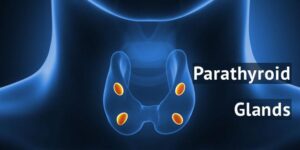There’s no cure for osteoporosis. But there is hope.
At the Endocrine Center, we believe honesty is the best and only place to start because it allows you to focus on what can be done. And when it comes to osteoporosis — a condition that robs your bones of precious minerals and causes them to become increasingly weaker and more brittle — a lot can be done.
Is osteoporosis reversible? That’s a complicated question with a complicated answer. Here, our team of expert endocrinologists takes a deeper look at osteoporosis treatments and how they work together with a healthy lifestyle to slow the progression of — and possibly reverse — osteoporosis.
Can you reverse osteoporosis?
Technically, once you have osteoporosis, you have it for life. It’s incurable. However, there are ways to prevent it, ways to slow down its progression, and — if you catch it early enough — ways to counteract it.
Preventing osteoporosis starts early in your childhood and continues throughout your life. It involves making smart choices for the growth and health of your bones, including a diet of calcium-rich foods, plenty of vitamin D, weight-bearing exercises, and limiting caffeine, alcohol, and smoking.
If you already have osteoporosis, we can help you slow or stop the progression of the disease with a variety of treatments.
However, there’s a point that lies between these two stages of bone health called osteopenia, or pre-osteoporosis. During this stage, you may be able to reverse your condition before it reaches a critical point.
Understanding osteopenia
When we test your bones for osteoporosis, we use technology called dual-energy X-ray absorptiometry, or DEXA. It’s noninvasive and painless, and it usually takes about 15 minutes or so to complete.
This test allows us to determine several factors about your bone health:
- How weak or strong your bones are
- If you’re at risk for a fracture
- If your bone density is getting worse or better
- Whether you have osteoporosis or osteopenia
We base these conclusions on the results of your DEXA test, which scores your bone mineral density compared to two populations: young healthy adults (your T-score) and adults of a similar age (your Z-score).
We focus on the T-score for diagnostic purposes. In general, if your T-score is a positive number, you have strong, healthy bones. If it’s a negative number, it means your bones have lost density and are weakening. Any T-score of -2.5 or lower indicates osteoporosis.
A T-score of -1 to -2.5 indicates low bone mass, which means you don’t yet have osteoporosis. Instead, you have a condition called osteopenia and a chance to reverse the trajectory of your bone health. It’s also possible to move from the cusp of osteoporosis (-2.5 to -2.9) to the osteopenia range, which may also constitute a reversal. Here’s how.
What can you do about bone loss?
To understand how to change your bone health, you need to understand some key facts about bones. Your bones are alive, constantly replacing old cells with new ones and rebuilding themselves to remain strong and useful throughout your life. But somewhere around age 30, the renewal process slows down and can’t replace cells as fast as you lose them.
More than 54 million Americans suffer from brittle, porous bones, and most of them are women over age 50. Many factors contribute to bone loss, including health conditions, medical procedures, hormone imbalances, age, and lifestyle. Your ability to rebuild bone depends on what caused the loss in the first place and whether it’s possible to make a change at the source.
Our team at Ally Endocrinology lets you know what’s contributing to your loss of bone density and what can be done to slow or stop it. We offer a full range of treatments and medications that can help your body rebuild bone matter, but they all start with a healthy diet of calcium-rich foods and vitamin D and weight-bearing exercises.
Some medications and treatments inhibit the breakdown of your bones, some increase bone density, and some prevent future loss. If you have osteoporosis or are in a high-risk group, we encourage you to call or click to schedule a consultation with our team at any of our three locations in Troy, Michigan . We let you know your treatment options and partner with you to keep your bones as strong and healthy as they can be.



